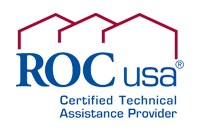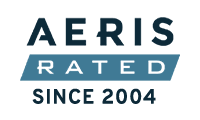
To flush, or not to flush?
By ROC-NH staff
A workshop about management of wastewater systems stressed the importance of keeping non-dispersible items out of the toilet.
We recently had the privilege of co-hosting a workshop with the Granite State Rural Water Association on Asset Management of Wastewater Systems.
Wait? Did you read that right? Why would Granite State Rural WATER be doing a workshop on wastewater systems? They are water people, aren’t they?
Have no fear. They are still the specialists to call if you are having water system issues or leaks, but they know something about wastewater systems too!
The information-packed day was attended by co-op system owners, as well as town and city municipal water operators. What’s cool about that is that attendees learned that whether you manage a small system, like your co-op, or manage a large system that serves 1,000 or more users, the challenges are the same.
Every representative there agreed that the biggest challenges are financial burdens, planning for improvement, training technical staff and homeowner education.
We also learned that the challenges of managing water and wastewater syetems are essentially the same. Every system manager hears from homeowners the minute that they have poor quality water or, perhaps, not enough pressure. With wastewater, it is typically a crisis that provokes action.
If you have any experience with managing infrastructure, or perhaps your own home repairs, you know that an emergency is not a good time to plan.
Start with a plan
Participants learned about the importance of planning for wastewater systems right from the point of installing or acquiring them. We dove into how to create a good inventory and then work to create a capital improvement plan that allocates appropriate funds to replace old or failing systems.
What should we flush?
Some folks think anything can be flushed down the toilet. But if an item isn't dispersible, it should not be flushed. "Dispersible" means that if the item sits in water it will eventually completely dissolve.
Flushing non-dispersible items can cause major problems. Pumps, septic baffles and even homeowner connections can clog and lead to very costly repairs or replacements.
Several consumer products are labeled "flushable," or have very small print saying “dispose of properly." However, these products are in no way dispersible. The N.H. Dept. of Environmental Services has a What’s flushable brohure. It's a great tool to make homeowners aware of the importance of flushing only appropriate items.
Know your system
A good question was posed: How does one know about their system’s useful life or its current condition?
Some communities have engineering or property conditions reports that contain detailed information about their water systems. Communities that don't have such a report may want to work with an engineer to get one.
Septic inspectors can report on the size, type, conditions and useful remaining life for your septic system.
In both cases, this information is a great start to planning for the future.
For the second half of the workshop, each participant did a self-assessment of their community’s challenges by prioritizing known problems. Some participants were challenged by lack of funds to repair or replace systems, others lacked manpower (or volunteers) to maintain the system. Most often, though, the problem was users not understanding the importance of not flushing things that do not go into the toilet!
From there the group discussed how to create an action plan to address those top priorities. It was a great exercise and gave each person something concrete and useful to take back to their communities.
Interested in learning more about how to manage community systems? Visit www.granitestatewater.org for more trainings, or talk with your ROC-NH technical assistance provider.
ROC-NH is a program of the New Hampshire Community Loan Fund, Inc. and a ROC USA® Certified Technical Assistance Provider.
ROC-NH is a registered service mark of ROC USA, LLC.















